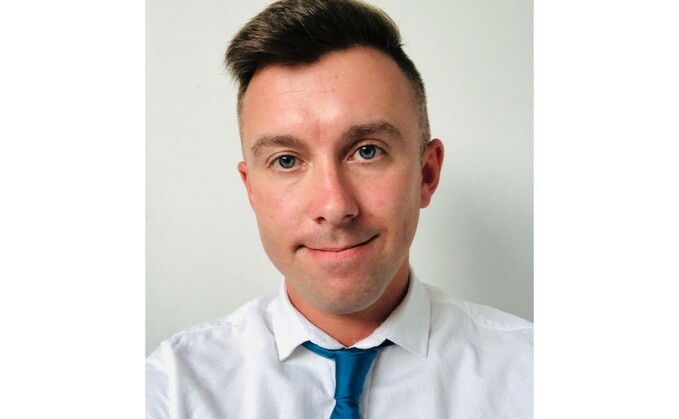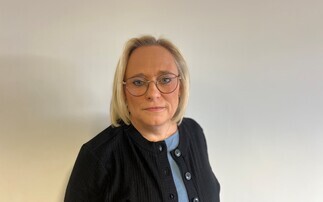
James Pike, admin support coordinator at FutureProof
In the third in a series of articles for Pride 2023, Jaskeet Briah speaks to James Pike, admin support coordinator at FutureProof, about his experience working in the protection industry as a member of the LGBTQ+ community.
As the only openly LGBTQ+ member in his office, Pike notes that he has had no negative experiences while working in protection due to his sexuality: "I can be very open about who I am, which is a big contrast to where I have worked before in the City where there's a very a macho culture."
Prior to joining FutureProof, an appointed representative of St. James's Place (SJP), Pike worked in the wider financial services industry, primarily on the pensions and investment side where the culture environment wasn't quite as supportive towards Pike's sexuality.
"At previous places I worked, I wasn't able to be myself at all; I had to almost hide it because I was surrounded by people that would make jokes in the background, and this still exists unfortunately," he shares. "I had to deflect any questions about my personal life."
Since entering the protection sector two years ago, Pike's experience have been the complete opposite: "I'm very lucky since moving to where I am now. Everyone's been welcoming, accepting and supportive," he says.
"My identity is not an issue at all - it's just who I am."
As his previous negative encounters were pre-Covid-19, Pike hopes this mindset will start to change as the pandemic "gave people time to reflect."
"From what I see, that whole macho office culture has died down a bit because people were away from it for a long time during lockdown," Pike explains.
"In the last two or three years, there's been a lot more media presence and the LGBTQ+ community are very much more in the public eye now, so there's been more acceptance of that since Covid-19."
"It gave people time to reflect and that hopefully kill the typical ‘sissy lifestyle' stereotype of going out and getting drunk every night - all the stuff that I personally wouldn't be interested in."
With hybrid working now the norm for most, people don't feel as anxious about being themselves as they're not in the office as much, Pike adds.
"If you're in the office environment from Monday to Friday, it's quite a lot. Trying to put on a front daily is tiring and quite draining. Since being at SJP, it's the complete opposite - this is how it should be."
Visibility and networking
Limited visibility of those who identify as LGBTQ+ in the protection space is an issue that has been commonly raised by those in the community, but there is also limited engagement with Pride events.
During his time in protection, Pike notes the sector hasn't held any events dedicated to Pride so far: "We definitely need more of that, especially in SJP. I was in London Pride last year and I tagged along with my friend's work. They organised a Pride event and it was incredible; we could do something like this."
By attending Pride events and even having a Pride float, the protection industry can improve engagement with more LGBTQ+ colleagues and encourage networking within the community, he says.
"Pride is not just about celebrating gay people, there's different elements to the community, including transgender, non-binary and gender fluid people."
"Having people feel that they can be themselves at work and celebrate everyone on the team makes for a happier work environment."
Pike also recommends launching a networking group for colleagues in the LGBTQ+ community and holding regular networking events going forward, both within SJP and across the protection industry.
These networking groups should not only be open just for LGBTQ+ colleagues, Pike details, but for anyone to come and join and "see how we are, how many of us are in the industry and how important it could be in terms of the business in the future."
"Getting the message out there that we are proud to have members of the LGBT community on our team will hopefully give people the confidence to say that this is a very welcoming sector where you can be yourself."
Improving representation
To make the LGBTQ+ community feel better supported and represented, diversity should be implemented within case studies and blogs on an intersectional level.
"On the business that we process, I've personally come across around 5% who are same sex couples or LGBT members. The number of clients we have in this community could definitely be higher," Pike shares.
"We have a blog that includes case studies, but we should use examples of same sex couples to make customers more confident in approaching us, as well as examples of other members of the community, such as for transgender customers to give more visibility."
This will allow customers who might be reluctant to pick up the phone to see that another client who is in a similar situation has secured a policy and that a protection product helped them in a time of need, Pike detailed.
"Making potential customers who are in same sex couples or part of the wider LGBTQ+ community aware that they have the same protection needs as everyone else will boost client engagement, as will increasing education on all the products that are available to this community."













